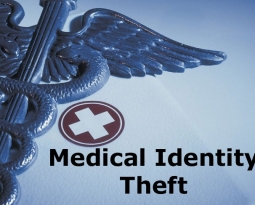
A victim of identify theft? Here’s what to do
::
One of the worst byproducts of our digital age is identity theft.
The ease that computers have brought to many of our activities has also extended to the bad guys. It’s easier than ever for them to steal your personal information and then cloak themselves in it as they drain your bank account or run up charges on your credit cards. They may even snatch your income tax refund or get medical treatment on your health insurance.
Making the problem even more complicated for you is the fact that the burden of proof rests on you to convince the world that you are the real you and that the ID thief is in the wrong. Undoing the tangled mess can take a frustratingly lengthy time.
Remember to attend the Better Business Bureau’s program on ID theft Thursday from 7:30 until 9 a.m. at the Wichita Area Builders Association, 730 N. Main in Wichita. It is free and begins with a continental breakfast at 7:30 a.m. followed by a presentation from Eva Velasquez, president of the National ID Theft Resource Center.
Signs you have been attacked
Watch for these indicators that your ID has been stolen:
▪ There are withdrawals on your bank account that you cannot explain.
▪ Bills or other mail does not arrive.
▪ A retailer refuses your check.
▪ Calls begin from debt collectors about debts that aren’t yours.
▪ Unfamiliar charges show up on your card statements.
▪ Your credit report shows unfamiliar accounts.
▪ Medical bills for services you didn’t use start coming.
▪ Your health plan says you have reached your benefits limit and rejects a claim.
▪ Health plan coverage is rejected because they say you have a medical condition that you do not have.
▪ The IRS says more than one return was filed in your name.
Untangling the mess
When it has become clear that your identity has been stolen, these are the steps to take:
▪ Tell one of the three credit reporting companies (Equifax, Experian or TransUnion) to put a fraud alert on your credit report. By law they must notify the other two of your action. This makes it difficult for fraudsters to open new accounts in your name. The alert stays on your record for at least 90 days and can be renewed.
▪ Put a credit freeze on your accounts. This stops all access to your credit. Find additional information about fraud alerts and credit freezes at consumer.ftc.gov.
▪ Order your credit report. When you place a fraud alert on your credit, you are entitled to a free report from each of the three agencies.
▪ If you know which account specifically was tampered with, contact the fraud department of that business and follow up in writing. Use certified mail to help you create a record of all your communications.
▪ Contact the Federal Trade Commission and file an Identity Theft Affidavit. Create an Identity Theft Report with the FTC by following instructions on their website.
▪ Report to the Social Security Administration if you suspect your Social Security number has been compromised, by calling 800-269-0271. This is an important step that should not be overlooked.
▪ File a report with local law enforcement agencies.
Take the time to visit the websites of the FTC (ftc.gov) and the Identity Theft Resource Center (idtheftcenter.org) for more details about coping with this crime.







